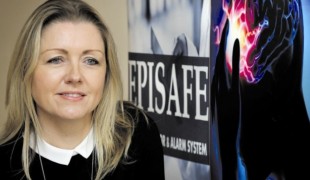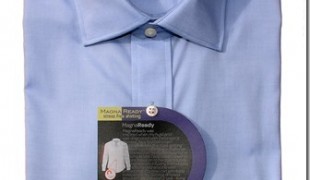- 5841
- 432
- 6
- 5
- 0
- Help Ukraine
About the solution
Made up of balloon-like shades of colorful plastic in the three primary colors, Eatwell almost looks like a Playskool dinner set. But Eatwell isn't designed for children—it's scaled for adult hands—and the colors weren't chosen to be playful. Yao says that she chose her shades of red, yellow, and blue because of a study conducted by researchers at Boston University who discovered that individuals with cognitive impairment consumed 24% more food and 84% more liquid when they were served in brightly colored vessels.
The Eatwell was designed not only to improve the patient's ability to eat, but also to facilitate their caregivers job.
Every piece has been custom designed to address the needs of cognitive, motor, and physical impairments. The bowls and cups have a slanted base, to allow liquids and semi-solid foods to naturally collect on one side, making it easier for Alzheimer's patients to scoop and sip from them. Meanwhile, the curvature of the spoon head is designed to precisely match the contours at the bottom and sides of the bowls, allowing the latter to act like a natural guide for scooping.
In all, Yao says the Eatwell has over 20 unique features, designed especially to meet the special needs of people with Alzheimer's and other motor or mental impairments, features which helped Yao easily fund Eatwell on Indiegogo last year. "The response and the feedback that we have been getting from early testers, caretakers, and specialists in the aging care and elderly communities have been overwhelmingly and universally positive," she says.
More info: www.eatwellset.com
Adapted from: https://bit.ly/1J4Hzy3
https://www.youtube.com/watch?feature=player_embedded&v=PhIQRl2D9c0
This solution shall not include mention to the use of drugs, chemicals or biologicals (including food); invasive devices; offensive, commercial or inherently dangerous content. This solution was not medically validated. Proceed with caution! If you have any doubts, please consult with a health professional.
DISCLAIMER: This story was written by someone who is not the author of the solution, therefore please be advised that, although it was written with the utmost respect for the innovation and the innovator, there can be some incorrect statements. If you find any errors please contact the patient Innovation team via info@patient-innovation.com
-
-
375
-
0
-
4578

Collaborator Pierluigi Mantovani creates Evolution Devices - solutions that aim to transform Multiple Sclerosis Management
CAREGIVING
BODY BALANCE: Maintaining body balance
STANDING UP: Standing up from a seated position
WALKING: Walking
Multiple Sclerosis
Assistive Daily Life Device (to help ADL)
Walking Aid (wheelchair/walker/crutches)
App (Including when connected with wearable)
AI algorithm
Body-Worn solutions (Clothing, accessories, shoes, sensors...)
Restoring mobility
Regaining sensory function
Managing pain
Promoting self-management
Preserving Organ Function
Managing Neurological Disorders
Maintaining Balance and Mobility
To improve Treatment/Therapy
Preventing (Vaccination, Protection, Falls, Research/Mapping)
Raise awareness
Caregiving Support
General and Family Medicine
Internal Medicine
Medical Genetics
Neurology
Physical Medicine and Rehabilitation
United States
-
-
-
750
-
0
-
12856

Device to monitor Epilepsy seizures
CAREGIVING
Epilepsy
Assistive Daily Life Device (to help ADL)
Seizures
Enhancing health literacy
Promoting self-management
Managing Neurological Disorders
To implement a diagnostic tool
To improve Treatment/Therapy
Raise awareness
Caregiving Support
General and Family Medicine
Internal Medicine
Neurology
Pediatrics
United Kingdom
-
-
-
787
-
0
-
13954

MagnaReady® - adaptative clothing for people who struggle with fine motor skills
Grip
CAREGIVING
Parkinson's Disease
Body-Worn solutions (Clothing, accessories, shoes, sensors...)
Assistive Daily Life Device (to help ADL)
Tremors
Stiffness or rigidity (difficulty moving)
Trouble with fine motor skills (e.g., writing, buttoning clothes)
Promoting self-management
Managing Neurological Disorders
Promoting inclusivity and social integration
Caregiving Support
Internal Medicine
Neurology
Physical Medicine and Rehabilitation
Rheumatology
United States
-
 en
en